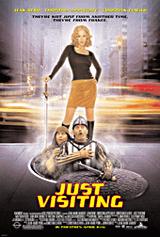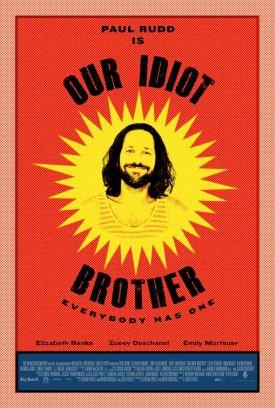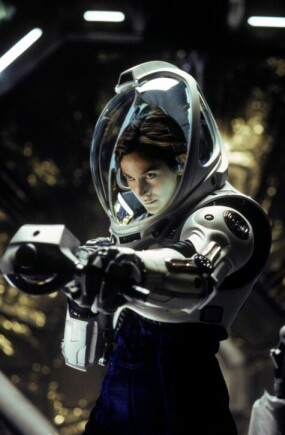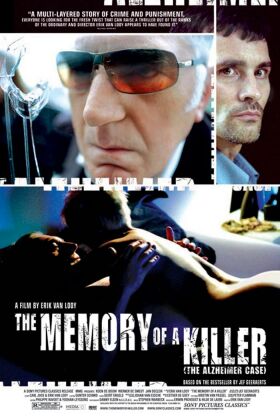Just Visiting
What, I wonder, is the point of remaking a film
you’ve already made if
you’re just going to make the same
mistakes over again? In fact, in Just Visiting Jean-Marie Gaubert makes
the same mistakes he made in Les Visiteurs (1993) only more
so—perhaps because he took on John
Hughes to help him tart the script up for its English-language version. Skilled
as Mr. Hughes is in the very narrow area of his expertise (mainly writing
Home Alone movies), he is not the man to see that what Les
Visiteurs lacked was a serious sense of the difference between people in the
12th or 13th
centuries and people today, let alone the man to supply it. In fact, he was just
the man to focus like a laser on the unserious
differences—what fun he has with the
medieval visitors’ discovery of indoor
plumbing!—while relegating the serious
stuff to a bit of hastily made-up psychobabble.
However, readers in serious need of a bit of a laugh may well decide that
their $8 or $9 has not been spent in vain. Jean Reno and Christian Clavier (who
wrote the original screenplay with Jean-Marie Poire) reprise their original
roles as Thibault, Comte de Malfete and his servant André, and if
anything do an even better job of looking surprised by the technological
innovations of the 20th (and, indeed, the
19th) century. Large sections of the audience
will be tempted to cheer when the Count slays an automotive dragon and, in the
process, puts a violent end to “The
Macarena” on its sound system, or when
he destroys a television set in an attempt to free from putative captivity
therein the contestants on “Family
Feud.” But these amusing episodes,
together with the ones featuring toilets and urinals and a flaming chicken
spitted on an umbrella, run out about half-way through.
Thereafter, we are left with a lot of cheesy special effects, supposedly a
product of the potions of an English wizard played by Malcolm McDowell, to
account for the time travel and the aforementioned psychobabble derived from the
feminist self-esteem movement. The Count, on being translated to the year 2000,
finds himself under the protection of his descendant, Julia Malfete (Christina
Applegate) and her scheming boyfriend, Hunter (Matthew Ross) who calls her
“Bunny”
and makes her believe that she needs him to run her life for her. Of course, he
is scheming with another girlfriend, Amber (Bridgette Wilson-Sampras) to rob her
and then leave her. Her many times great grandfather arrives and, in the
intervals of playing the buffoon with unfamiliar objects, teaches her not to be
a bunny anymore, but to be a strong and independent woman. The family motto is
“Courage is my
creed” and
“all the woman of our lineage are
lionhearted” he tells
her—not bunny-hearted.
Well, this is very nice for her, especially as it gets the loathsome Hunter
out of her life, but it has the most unwelcome effect of making the Count
altogether too much a modern man. Of course, one can scarcely imagine a movie on
this theme which would present such a hero with the attitude to women that
someone like him in real life would presumably have had. There are limits to
Hollywood’s appreciation of knights in
shining armor. The script makes a few gestures in the direction of moral and
psychological authenticity by showing how the Count is disposed to treat his
servant, André, as property. But then he manumits him at
Julia’s instance to become
“a free
man” in the present day, roaring off
to Vegas with his new gardener girlfriend (Tara Reid) while Count Thibault
returns with the Wizard to his own time to marry
Julia’s lookalike, also played by Miss
Applegate. So that’s all right
then!
Discover more from James Bowman
Subscribe to get the latest posts to your email.








